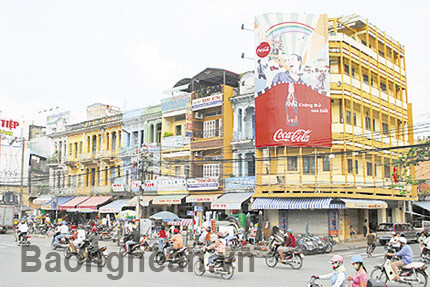Transfer pricing - reporting losses of foreign enterprises
(Baonghean) - If it weren't for the press, no one would have guessed that Coca Cola Vietnam Company with its drink...
(Baonghean) - If it had not been exposed by the press, no one would have guessed that Coca Cola Vietnam Company with its famous soft drink has never made a profit in the past 18 years, even though its revenue has increased continuously every year. Statistics from the Ho Chi Minh City Tax Department show that: In 2004, Coca Cola Vietnam had a revenue of 728 billion VND, a loss of 110 billion VND; in 2006, the revenue jumped to 1,026 billion VND, the loss was up to 253 billion VND; most recently, in 2010, it had a loss of 188 billion VND on a revenue of 2,529 billion VND.
If the above figures are true, it means that Coca Cola has poured "free" into the market by September 2009 about 3,768 billion VND and "negative" equity of more than 800 billion VND. Who else but Vietnamese consumers can benefit from that money? No boss can accept the reality of continuous business losses, such large losses, unless he is aiming for charity or other non-economic purposes.

Coca Cola with large billboards on the streets of Vietnam
Not only Coca Cola Vietnam, many other foreign companies investing in Vietnam are also in a similar situation: PepsiCo, Adidas,... all have been losing money year after year. The paradox is that while losing money, they are increasing investment, expanding production and business, challenging managers...
However, according to economic experts, it is not difficult to understand why these "big guys" are losing money. Because if they are losing money, they do not have to pay corporate income tax, only value added tax (which is actually paid by consumers) and business license tax... To do that, is there a better way than to increase the cost of importing raw materials from the parent company abroad? Coca-Cola's raw materials are explained by the company itself as exclusive, long-standing inventions, including intellectual property costs, so they are very expensive. In 2009, this cost of Coca-Cola Vietnam was 1,065 billion VND out of total revenue of 1,752 billion VND...
With just such a simple "move", foreign companies have "bypassed" the tax authorities, freely transferred prices outside of Vietnam's territory legally, and are assured of not paying a single penny in taxes to the country that has contributed to their enrichment... Vietnam's legal system has no provisions regulating this behavior, so the above companies are still doing business and making losses (!).
Many people say that, legally, yes, but what about ethics? You come to do business in this country, you have the obligation, the responsibility to contribute to building the country that was once devastated by war and is still a poor country with countless difficulties both in the short and long term? That ethical call can probably only be met at certain times, with specific tasks.
To ensure transparency and fairness, we still have to rely on the legal framework. People have circumvented the law to avoid taxes, so we must also use the law to bind obligations and responsibilities. First of all, the authorities need to collect data, evidence, prepare documents on transfer pricing and especially perfect the laws to force businesses to self-regulate their business methods in a clear and transparent manner. On the other hand, it is very necessary to promote international cooperation between the Vietnamese tax authorities and the tax authorities of relevant countries to conduct inspections, verifications, and reviews of transactions with signs of ambiguity, and collect the correct and sufficient taxes on the actual profits of businesses. At the same time, cases of commercial fraud with signs of criminality need to be prosecuted and strictly tried.
In the newspapers, there are people calling for boycotting the goods and services of these businesses, for example, "Drinking Coca-Cola is making the country poor!", but I think there is no more effective solution than increasing the power of the law, perfecting the monitoring, inspection, verification mechanism and organizing the collection of taxes in a timely and fair manner, protecting the interests of the country.
Hoai Quan






